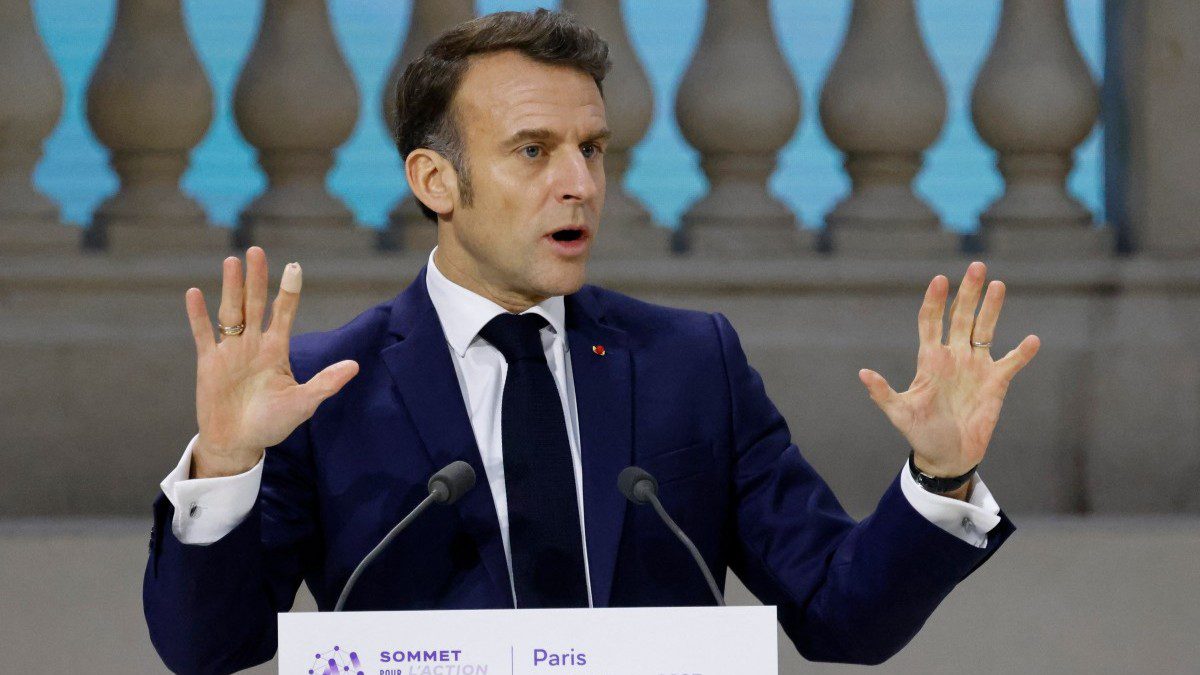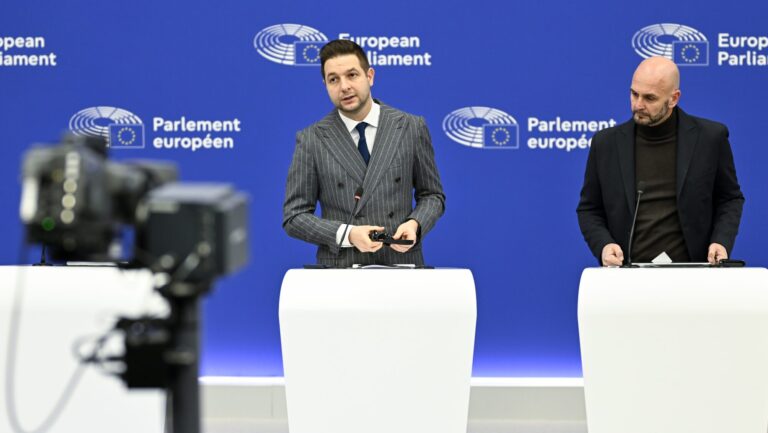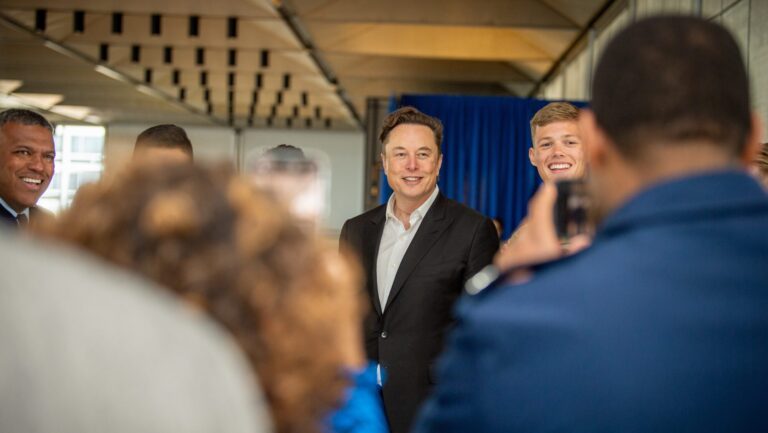On Thursday, February 6th, an international summit on Artificial Intelligence, organised on the initiative of France and India, began in Paris. President Macron seized the opportunity to promote a French policy on AI—mainly based on foreign investments.
This is the third international meeting on the subject. No fewer than 1,500 participants gathered to discuss the political and economic issues surrounding this rapidly expanding technology. Around a hundred heads of state took part in the meeting, along with numerous tech company executives and AI players.
Macron took the floor at the end of the day on Monday, February 10th to announce his plan for the development of AI in France and Europe, following announcements made the day before on French television. He explained that he wanted to put on the table a €109 billion investment in the AI sector.
A giant data centre is to be built in France, which is to form part of an AI-focused campus—the largest in Europe, according to the Élysée.
In a context of maximum budgetary tension, it should be noted these are mainly private and foreign investments: The United Arab Emirates, for example, will contribute €50 billion—almost half of the total. The newspaper Causeur thus questions the stated ambitions: what sovereignty are we talking about when such a plan depends so dramatically on foreign investment?
Macron intends to respond to the American investment announced by Donald Trump in the ‘Stargate’ programme dedicated to AI. The amount proposed by Trump for the Stargate plan is estimated at €480 billion. Macron argued that, relative to the GDP of each of the two countries, the investments in France will be proportionally higher. “We are talking about a colossal amount, never seen before,” he insisted.
But “while Stargate is a project conceived, financed and executed by American actors, exclusively serving the strategic interests of the United States, the initiative announced by President Macron relies on foreign capital—notably from the UAE, Canada and China, with indirect participation from certain American funds,” explains Cyrille Dalmont, associate researcher at the Thomas More Institute on artificial intelligence issues in an article for Causeur.
At this stage, no guarantees have been provided regarding control of the infrastructure, data, and technologies that will be developed under the agreements with foreign investors. “France is relying on foreign capital without measuring the strategic consequences,” Dalmont concludes.
Macron took the opportunity to highlight France’s energy assets through nuclear power, as opposed to the hydrocarbons favoured by Donald Trump. Insisting on the availability of “low-carbon energy” to power AI infrastructures, he launched a slogan opposed to that of his American counterpart: “Just plug, baby, plug,” in response to Donald Trump’s “Drill, baby, drill.” Calling on investors to bet on it, he insisted: “You can plug in. It’s ready,” extolling the advantages of nuclear power as a reliable and clean solution to support the growth of data centres.
“We have the best ecosystem in Europe,” Macron concluded his speech, anticipating Ursula von der Leyen’s announcements scheduled for the following day.
On the sidelines of the summit, a lunch was held on Tuesday, February 11th, at the Élysée Palace between Vice-President JD Vance and Macron. On the menu was a discussion of the possible increase in customs duties on European products destined for the United States. “Your enemy is China, not Europe,” Macron tried to point out to his interlocutor.






